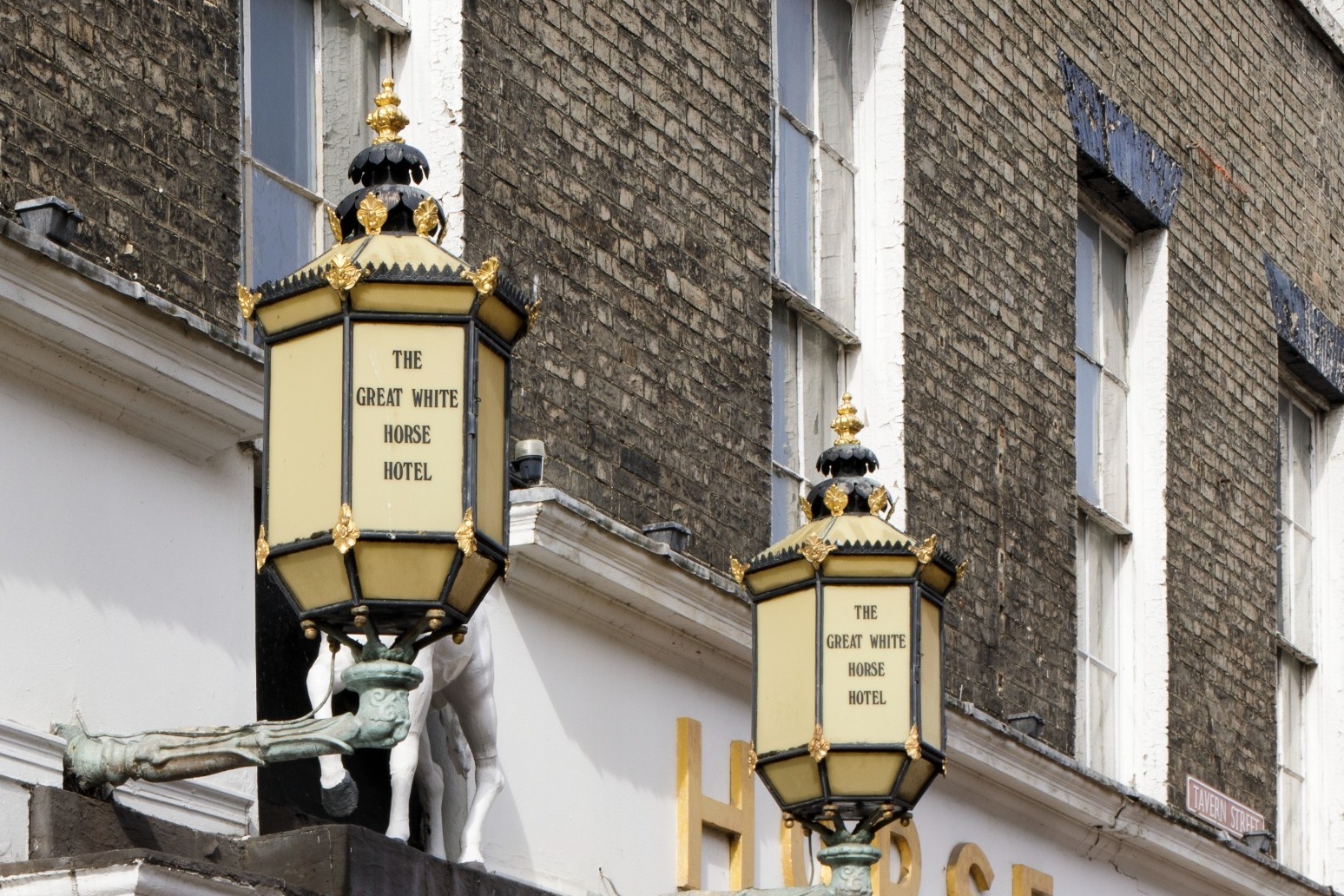
A hotel which inspired Charles Dickens’ first novel and counts the Beatles and King George II among its former guests has been named as a historic site at risk of being lost forever.
Over the past year, Historic England has added 159 buildings to its Heritage at Risk Register under threat from decay, neglect or inappropriate development – while 203 sites have been rescued.
Holmfirth Conservation Area in West Yorkshire, which featured in the popular TV comedy series Last Of The Summer Wine, was named among the saved sites on Thursday after vacancy rates fell and buildings were repaired and repurposed.
While the Great White Horse Hotel in Ipswich, Suffolk, which inspired regular guest Dickens’ first novel The Pickwick Papers and has hosted British stars and notable historical figures over the years including Admiral Lord Nelson, made the at risk list.
Historic England said there is active dry rot in the second floor space named the Dickens room, alongside deteriorating windows, and gutters and drainpipes which are in poor condition.
St Mary’s Church in Stoke-By-Nayland in Suffolk, which was frequently painted by landscape artist John Constable, has also been named among the sites on the Heritage at Risk Register.
The village church is set to undergo repairs in December after a fundraising campaign by the Church Council and a £135,000 repair grant from Historic England.
Meanwhile Holbeche House in the West Midlands, which was once owned by one of the plotters associated with the Gunpowder Plot, is on the at risk list.
The house was the last refuge of the conspirators after they fled London and saw ringleader Robert Catesby killed in a gunfight three days after the plotters failed to blow up the Houses of Parliament – while others involved in the conspiracy were also killed or arrested there.
Historic England said the house was used as a care home but currently sits empty and is becoming a “site of concern for the local community”.
It marks 25 years since publication of the first Heritage at Risk Register, providing an annual snapshot of the health of England’s valued historic buildings and places.
Historic England said there are 48 fewer total entries on the list compared with 2022, and around 6,800 entries have been removed since the list began in 1998.
The saved sites include 19th-century designed Capernwray Hall Park and Garden in Lancashire; the Napoleonic era arms depot in Weedon, Northamptonshire; and Church of the Ascension in Greater Manchester which was repaired following a fire in 2017.
Arts and Heritage Minister Lord Parkinson of Whitley Bay said: “For a quarter of a century, the Heritage at Risk Register has helped to focus efforts to preserve cherished sites across the country.
“It is heartening to see that so many sites have had their futures secured and have been taken off the Register over the past year thanks to the hard work of Historic England and local people.
“I look forward to the new additions to the Register receiving similar care and attention so that future generations can continue to enjoy and learn from our rich heritage for years to come.”
Historic England said it awarded £7.63 million in grants for repairs to 155 sites on the Heritage at Risk Register during 2022 and 2023.
Published: by Radio NewsHub










